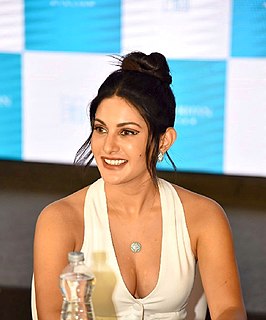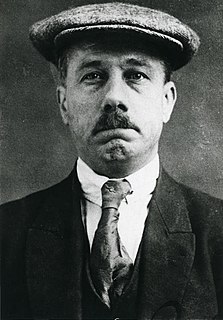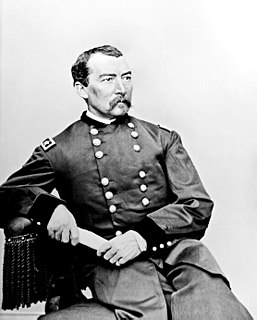A Quote by George Carlin
It is said that Indians were sometimes named for the first thing they saw when they were born. Makes you wonder why there aren't more Indians named Hairy Pussy, doesn't it?
Related Quotes
A regular council was held with the Indians, who had come in on their ponies, and speeches were made on both sides through an interpreter, quite in the described mode,--the Indians, as usual, having the advantage in point of truth and earnestness, and therefore of eloquence. The most prominent chief was named Little Crow. They were quite dissatisfied with the white man's treatment of them, and probably have reason to be so.
The turn of the century was the lowest point for the devastation of Indian culture by disease and persecution, and it's a wonder to me that they survived it and have not only maintained their identity, but are actually growing stronger in some ways. The situation is still very bad, especially in certain geographical areas, but there are more Indians going to school, more Indians becoming professional people, more Indians assuming full responsibility in our society. We have a long way to go, but we're making great strides.
A trip to a Central American jungle to watch how Indians behave near a bridge won't make you see either the jungle or the bridge or the Indians if you believe that the civilization you were born into is the only one that counts. Go and look around with the idea that everything you learned in school and college is wrong.
We need to give out portrayal of ourselves. Every non-Indian writer writes about 1860 to 1890 pretty much, and there is no non-Indian writer that can write movies about contemporary Indians. Only Indians can. Indians are usually romanticized. Non-Indians are totally irrepsonsible with the appropriation of Indians, because any time tou have an Indian in a movie, it's political. They're not used as people, they're used as points.
One of the prime backers of land bill was a Republican Congressman, a Paul Gosar. And when he was challenged by an Apache on this bill, he said, well, you know, Indians are wards of the federal government. This happened recently.That congressperson is obviously stuck in the 19th century when he thinks about Indians. How is that person going to legislate and treat Indians fairly and respect their rights when he has this sort of infantilized image of Indians as not being, you know, up to the same level of responsibility as everybody else?
Before AIM, Indians were dispirited, defeated, and culturally dissolving. People were ashamed to be Indian. You didn't see the young people wearing braids or chokers or ribbon shirts in those days. Hell, I didn't wear 'em. People didn't Sun Dance, they didn't Sweat, they were losing their languages. Then there was that spark at Alcatraz, and we took off. Man, we took a ride across this country. We put Indians and Indian rights smack dab in the middle of the public consciousness for the first time since the so-called Indian wars.
There were three classes of inhabitants who either frequent or inhabit the country which we had now entered: first, the loggers, who, for a part of the year, the winter and spring, are far the most numerous, but in the summer, except for a few explorers for timber, completely desert it; second, the few settlers I have named, the only permanent inhabitants, who live on the verge of it, and help raise supplies for the former; third, the hunters, mostly Indians, who range over it in their season.






























